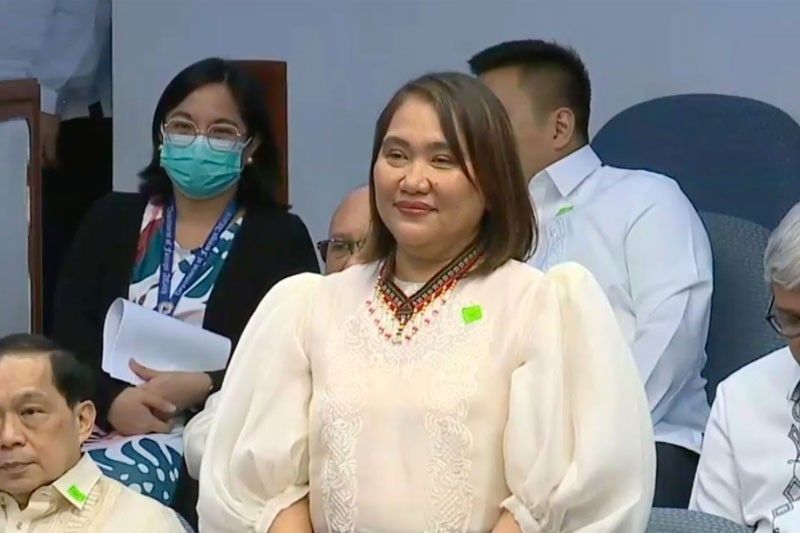Lawmakers vow to pass Marcos’ priority bills

MANILA, Philippines — Congressional leaders expressed confidence yesterday that the 20 priority bills of President Marcos would be passed by December.
The status of priority measures was discussed during the third Legislative-Executive Development Advisory Council (LEDAC) meeting yesterday at Malacañang.
“Both houses of Congress are on track for the December passage of the 20 priority measures requested by President Ferdinand R. Marcos Jr., including the General Appropriations Bill,” Presidential Communications Secretary Cheloy Garafil said in a statement.
The President certified as urgent yesterday the proposed P5.768-trillion national budget for 2024.?In a letter addressed Speaker Martin Romualdez, copy furnished to Senate President Juan Miguel Zubiri, Marcos invoked Article VI Section 26 of the Constitution in certifying the necessity of the “immediate enactment” of House Bill 8980.?“In order to address the need to maintain continuous government operations following the end of the current fiscal year, to expedite the funding of various programs, projects and activities for (fiscal year) 2024 and to ensure budgetary preparedness that will enable the government to effectively perform its Constitutional mandate,” Marcos said in his certification dated Sept. 20.
The priority measures identified for passage by the end of December include the bill on the national employment action plan; the measure on local government unit classification; proposed Internet Transaction Act; proposed Build-Operate-Transfer and Public-Private Partnership Act; proposed Salt Development Industry Act; the bill on ease of paying taxes; proposed Real Property Evaluation and Assessment Reform Act; proposed Magna Carta for Seafarers and the proposed Anti-Agriculture Smuggling Act.
Other bills that Congress aims to pass by yearend are the waste-to-energy bill; National Disease Prevention Management Authority bill; amendments to the Banking Act or Fund Secrecy Law; Medical Reserve Corps bill; measure creating the Virology Institute of the Philippines; proposed E-Governance Act; proposed New Philippine Passport Act; proposed National Government Rightsizing Act; proposed National Scamming Act; proposed National Citizens Service Training Program Act and the proposed Military and Uniformed Personnel Pension System Act.
Senate President Zubiri said the Senate has finished about half of the 20 priority measures of Marcos.
“They will become laws soon and those that are pending will become laws within the next few weeks, and hopefully the President will be able to sign it,” a Palace statement quoted Zubiri as saying.
“The President has a good legislative agenda and we will pass this as soon as possible, the latest at the end of the year… including the General Appropriations Act,” he added.
Zubiri noted that the Marcos administration’s economic team also has additional laws in its wish list, measures that he said would be supported by the Senate.
Speaker Romualdez said the chamber has approved 18 of the 20 priority measures of the President.
“Before we take a break, we will finish all the 20 priority LEDAC measures,” Romualdez said. “Of course, that includes the General Appropriations Bill that we shall also finish on third and final reading by Wednesday next week. So again, three days ahead of schedule before we go on break.”
With regard to the 17 bills mentioned by Marcos during his State of the Nation Address (SONA), Romualdez said the House has approved seven measures on final reading. The chamber has assured the President that all the measures would be passed by December, he added.
The measures enumerated by Marcos during his second SONA include the bills on excise tax on single use plastics; value added tax on digital services; rationalization of mining fiscal regime, motor vehicle user’s charge and road user’s tax; military and uniformed personnel pension reform; amendment of the fisheries code; amendment of the Anti-Agricultural Smuggling Act; amendment of the cooperative code; new government procurement law; new government auditing code; anti-financial accounts scamming; Tatak Pinoy law; Blue Economy law; ease of paying taxes; LGU income classification; Philippine Immigration Act and water resources management agency. ?LEDAC serves as a consultative and advisory body to the President on programs and policies needed to achieve economic targets.
Additional bills
The LEDAC also approved the inclusion of additional economic measures in its common legislative agenda for the 19th Congress.
“There are additional (bills) proposed by our economic team and we committed to support this as well. We do not see anything controversial (in the proposed measures),” Zubiri said. “We do not see anything that will cause inconvenience among our people.”
The additional measures in the LEDAC list are the amendments to the Government Procurement Reform Act; bill imposing excise tax on single-use plastics; amendments to the Cooperative Code; amendments to the Fisheries Code; proposed New Government Auditing Code; bill rationalizing the mining fiscal regime; proposed Philippine Defense Industry Development Act; proposed Philippine Maritime Zones Act, the proposed Open Access in Data Transmission Act and amendments to the Right-of-Way Act.– Helen Flores
- Latest
- Trending






























